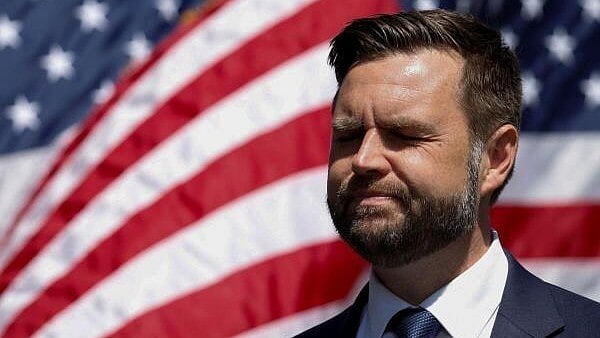
US Vice President J D Vance.
Credit: Reuters Photo
New Delhi: Washington, DC, does not yet foresee that the offensives and counter-offensives between India and Pakistan could lead to a broader regional conflict or a nuclear conflict, American Vice President J D Vance said, adding that the heightened military tension in South Asia was “fundamentally none of the business” of the United States.
“Our hope and our expectation are that this is not going to spiral into a broader regional war or, God forbid, a nuclear conflict,” said Vance, adding: “Right now, we don't think that's going to happen.”
The White House, however, said on Friday that President Donald Trump wanted to see the conflict “de-escalate as quickly as possible”.
India launched Operation Sindoor early Wednesday and carried out the strikes targeting terrorist camps in Pakistan as well as in parts of Kashmir under the illegal occupation of Pakistan.
The offensive by the Indian Army and the Indian Air Force was in response to the April 22 killing of 26 people by a gang of Pakistani and Pakistan-trained terrorists at Baisaran near Pahalgam in Jammu and Kashmir.
Pakistan, however, retaliated, targeting both the civilian population and military infrastructure in India.
“What we can do is try to encourage these folks to de-escalate a little bit, but we're not going to get involved in the middle of a war that's fundamentally none of our business and has nothing to do with America's ability to control it,” Vance told Fox News.
His comment came a day after Trump’s National Security Advisor and Secretary of State, Marco Rubio, called up External Affairs Minister S Jaishankar of India and Prime Minister Shehbaz Sharif of Pakistan and conveyed the US appeal for “immediate de-escalation”.
Rubio also nudged India and Pakistan to start “direct dialogue”.
Trump, himself, also told journalists that he was ready to do anything he could to help diffuse tension between India and Pakistan, as he got along with both.
“You know, America can't tell the Indians to lay down their arms. We can't tell the Pakistanis to lay down their arms. And so, we're going to continue to pursue this thing through diplomatic channels," Vance told the TV channel.
The US vice president, along with his family, was in Jaipur when the terrorists linked to Pakistan carried out the carnage in J&K. He had met Prime Minister Narendra Modi in New Delhi the previous day.
New Delhi conveyed to the Trump Administration in Washington, D.C, that India’s Operation Sindoor was a “measured and responsible” offensive against terrorist infrastructure in Pakistan and areas under the illegal occupation of Pakistan, and it was designed to be non-escalatory in nature. But, as Jaishankar and National Security Advisor Ajit Doval conveyed to the US, India would resolutely respond to any misadventure or any escalation by Pakistan.
